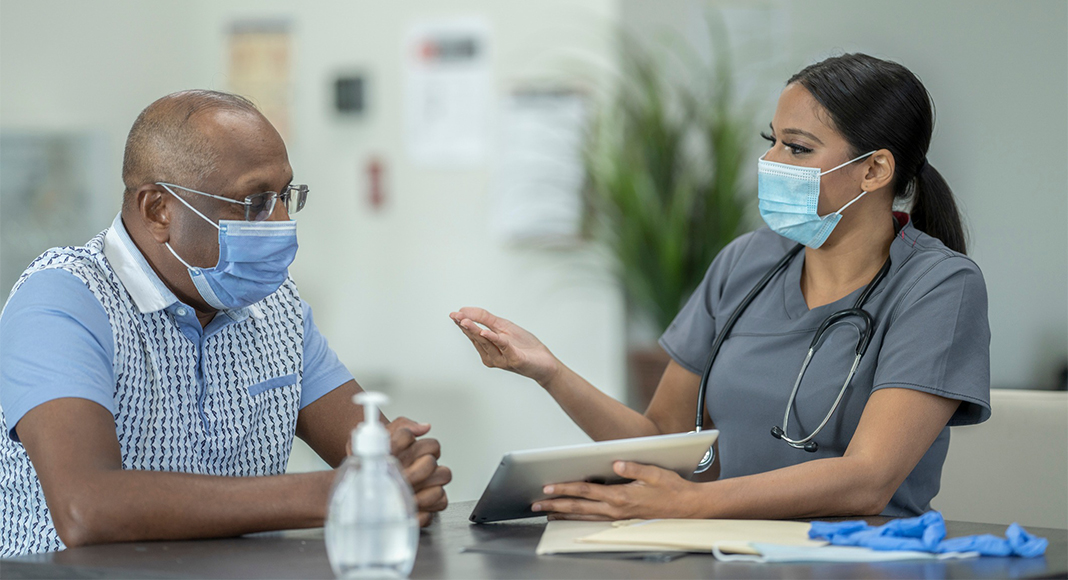
Mega Doctor News
If you are one of the people at increased risk for serious COVID-19 illness, it’s especially important for you to take action to reduce the risk of getting COVID-19. This video explains who is at increased risk and offers tips to help you avoid getting sick.
These tips can help cancer patients, as well as their family members and caregivers, stay healthy while staying home.
Cancer Patients and Survivors
If you have cancer now or had cancer in the past, you may need to take special steps to protect your health if you have to stay home. This is especially important for cancer patients who are treated with chemotherapy. They are more likely to get an infection because chemotherapy can weaken the immune system, and for the same reason the infection may be more severe.
• Watch out for fever. Take your temperature any time you feel warm, flushed, chilled, or not well. Call your doctor right away if you have a temperature of 100.4ºF (38ºC) or higher.
• Clean your hands. Many diseases are spread by not cleaning your hands, which is especially dangerous when you’re getting chemotherapy treatment. Wash your hands often.
• Know the signs and symptoms of infection. Infection during chemotherapy can lead to hospitalization or death. Call your doctor right away if you notice any of the signs and symptoms of an infection.
• Avoid other people as much as possible (social distancing). Avoid leaving home as much as possible. Maintain a distance of at least 6 feet (2m) between you and non-household members. If you must leave home, avoid places where people congregate. Have supplies and food delivered to your home.
• Cover your mouth and nose with a cloth face cover when around others to protect other people in case you are infected and ask others to do the same.
Caregivers, Family Members, and Others
It’s also very important for people who live with or take care of people with cancer to take steps to keep themselves healthy. As a caregiver, it is important for you to take care of yourself. All of your actions will impact your loved one’s health and well-being. Following the proper protocol is essential to help lower the chance of spreading an infection to the person with cancer.
Caregivers and household members must remember that if they become infected with COVID-19, they risk infecting the cancer patient. Therefore, in order to minimize their risk of becoming infected, they should observe the precautions recommended for the cancer patient as much as possible.
• Watch out for symptoms of infection: fever of 100.4ºF (38ºC) or higher, cough, or shortness of breath.
• Clean your hands often.
• Avoid other people as much as possible (social distancing). Avoid leaving home as much as possible. Maintain a distance of at least 6 feet (2m) between you and non-household members. If you must leave home, avoid places where people congregate. Have supplies and food delivered to your home.
• If a caregiver becomes ill: Immediately separate yourself from the cancer patient. If possible, stay away from the cancer patient’s home. If you must remain in the same household, isolate yourself in a separate room, if possible with a separate bathroom. Make arrangements for someone else to care for the cancer patient.
Cancer Patients: Preparing for Your Medical Needs
If you’re a cancer patient, you may need medicine or special medical equipment. You may also have doctor’s appointments scheduled.
• Ask your doctor about getting extra necessary medications to have on hand in case you need to stay home for a long time.
• Be sure you have over-the-counter medicines to treat fever and other symptoms in case you get sick.
• Call your doctor’s office several days before an appointment to make sure the doctor can still see you at that time.
• If you have cancer that is responding well to treatment, talk to your doctor about your chemotherapy schedule, and only consider delaying treatments after consultation with your doctor. Source CDC










